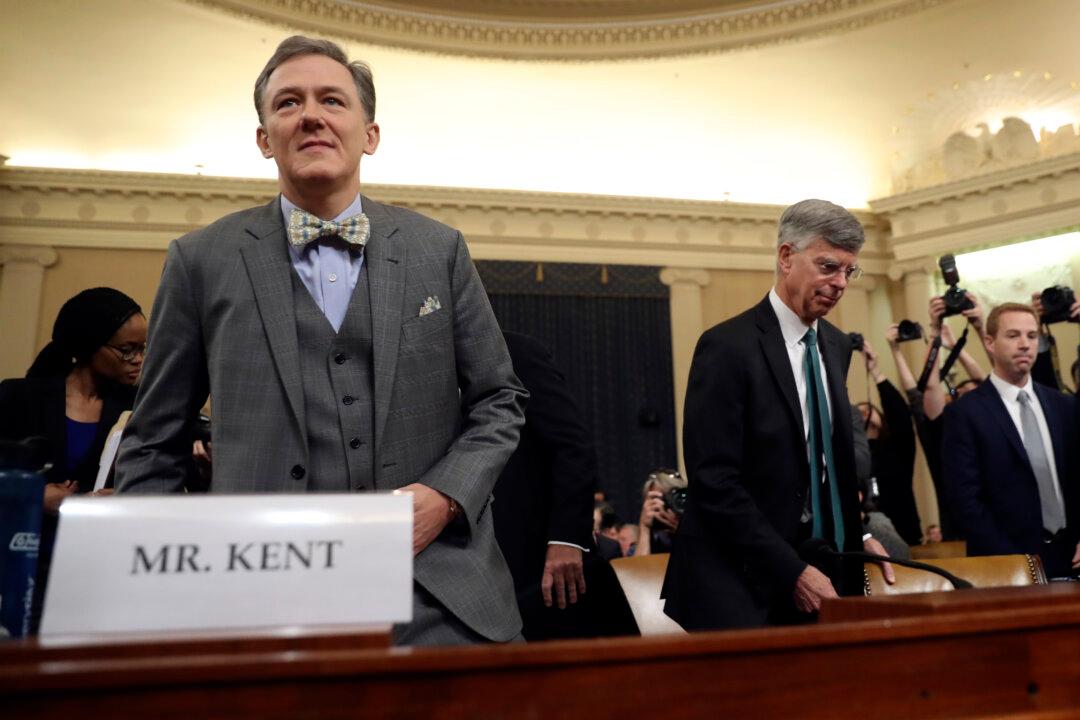In his opening statement at the Nov. 19 impeachment hearing, House Intelligence Committee ranking member Devin Nunes (R-Calif.) recommended that the American public read an article by investigative reporter John Solomon titled “Debunking Some of the Ukraine Scandal Myths About Biden and Election Interference.”
The recommendation by Nunes is the latest mention of Solomon during the impeachment hearings. Solomon’s name or work has been cited in all but two of the 10 impeachment deposition transcripts released to date.





